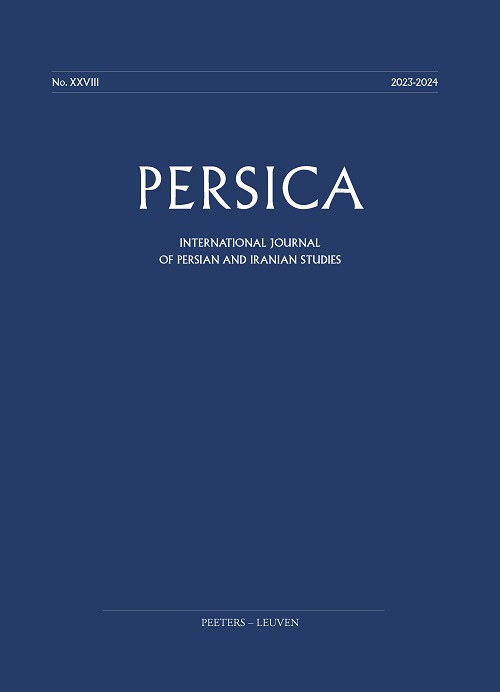 previous article in this issue previous article in this issue | next article in this issue  |

Preview first page |
Document Details : Title: The Notion of the Breath (nafas) in Ḥallāǧ Author(s): POURJAVADY, Nasrollah Journal: Persica Volume: 17 Date: 2001 Pages: 85-90 DOI: 10.2143/PERS.17.0.501 Abstract : Nafas (pl. anfās), meaning breath, both in Arabic and Persian1 is a term, which has been used in a technical sense throughout the history of Sufism, particularly in the classical period. One of the earliest Sufi saints to use this term is Bāyazīd Basṭāmī (d. 260/874), who said “The worship of God (‘ibādat) for the mystics (ahl-i ma‘rifat) is keeping watch over their own breaths (pās-i anfās).” Another saint is reported to have said: “The best act of worship is to count the breaths taken with (the remembrance of) God.” Through the practice of watching or counting his breaths, the Sufi may transcend the outer aspect of the breaths and begin to realize the inner and subtler qualities that exist in them. At this stage, breaths are said to be like a cool wind blowing from the domain of God’s nearness to cool down the heart of the Sufi, which is heated with the love of God. Hence, in explaining the meaning of nafas as a Sufi technical term, Abū Naṣr Sarrāṭ Tūsī (d. 378/988) writes: “Nafas is the pleasant cool breeze experienced by a heart that is burning (in the love of God).” |
|


